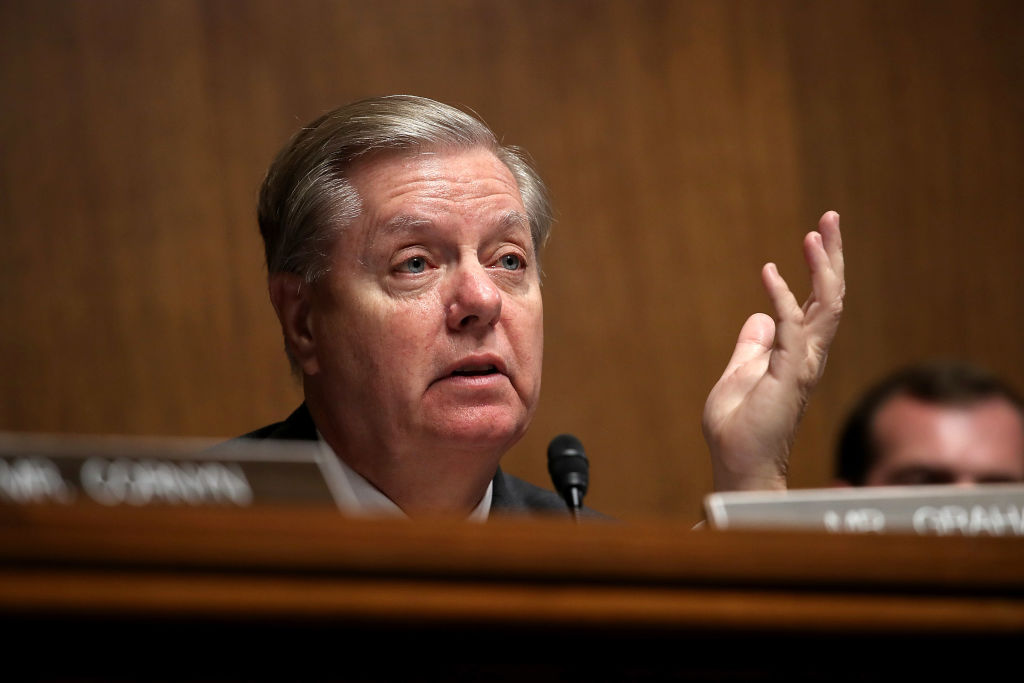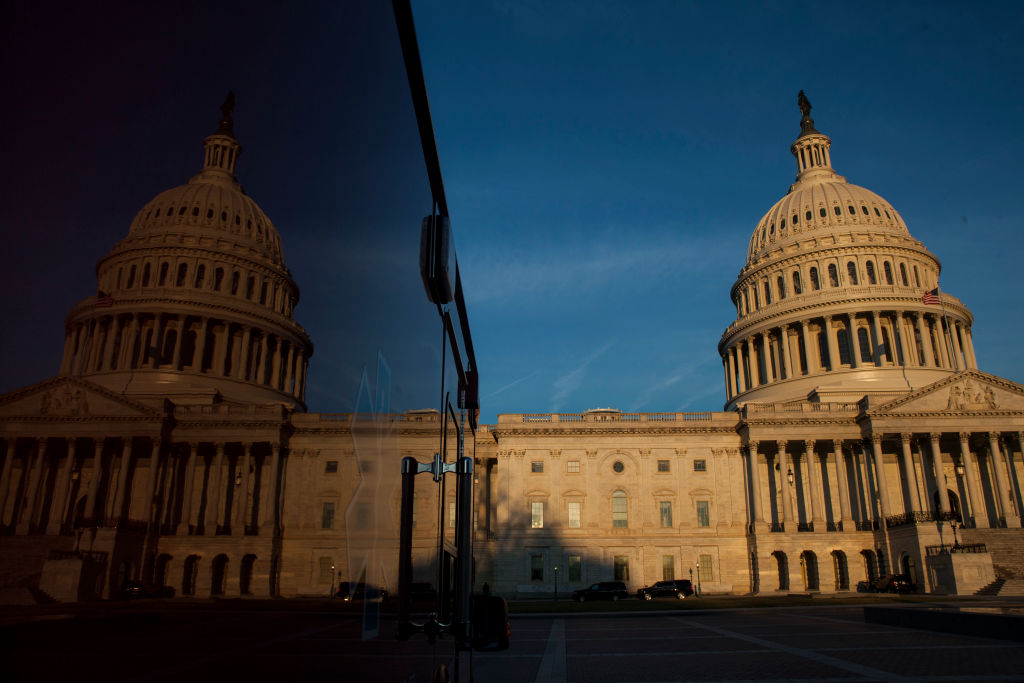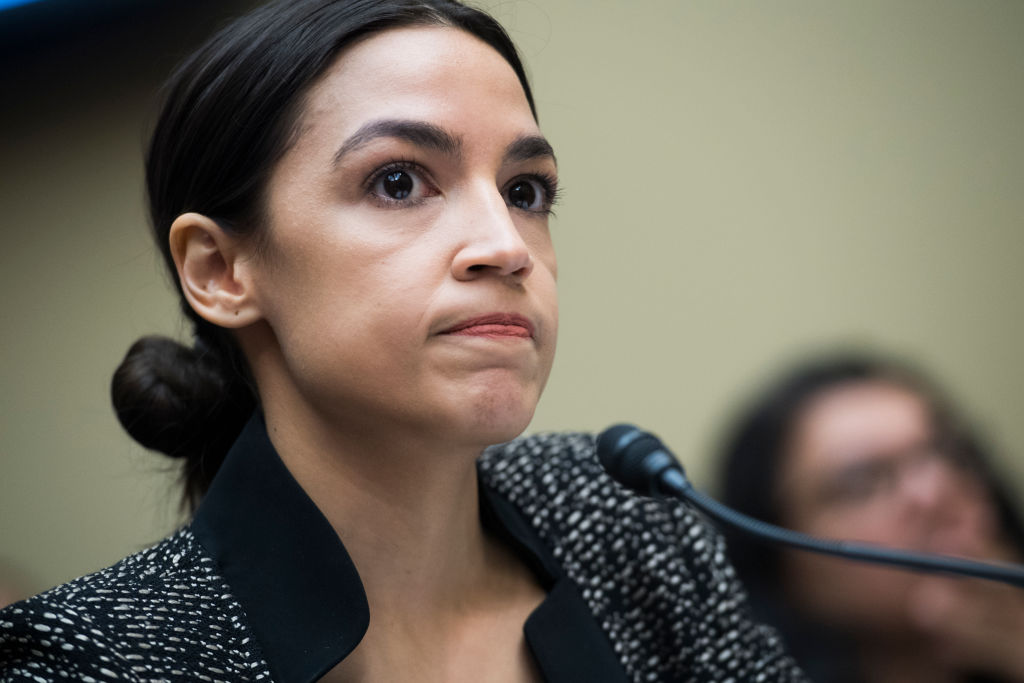A recent surge in activism, spurred in part by the popular Green New Deal, has made climate change a top issue for 2020 Democratic candidates and forced Republicans to reconsider their longstanding opposition to climate action.
Speaking at a Texas banquet Thursday, Sen. Lindsey Graham (R-SC) told reporters that congressional Republicans hope to develop their own climate bill, which will likely focus on energy efficiency, natural gas, and technology to clean up coal power plants.
“Let’s just cross the Rubicon,” Graham said. “Let’s, as a party, say the Green New Deal sucks but climate change is real.”
“We owe it to the country to have an alternative to the Green New Deal,” said Graham, as E&E News reported, noting the senator expressed frustration with those in his party who oppose climate action. “We’re going to sit down with the president and see if we can unveil a bill for 2020 that would be good for the environment and good for business.”
Graham is one of several Republican lawmakers eager to provide an alternative to the Green New Deal resolution, which was introduced in February by Rep. Alexandria Ocasio-Cortez (D-NY) and Sen. Ed Markey (D-MA). Polls show widespread support for the tenets of the Green New Deal — including clean energy and an economy free from fossil fuel emissions — and several 2020 Democratic presidential candidates have voiced their support for the proposal.
To counter this momentum, Sen. Lamar Alexander (R-TN) last month proposed a five-year “New Manhattan Project for Clean Energy Independence.” The plan would focus heavily on nuclear power. And at the beginning of April, Rep. Matt Gaetz (R-FL) held a press conference to introduce his “Green Real Deal,” which he described as “my love letter to the American innovator.”
“I think we might be witnessing a tipping point, finally, for some degree of bipartisan climate action,” climate scientist Michael Mann said on Friday at a conference in Florida.
Even President Donald Trump — who has called climate change a Chinese “hoax” — recently said, “We will have to do something [about the Green New Deal]. But don’t do it too early please, don’t kill it, because we want to be able to run against it.” Following this statement, it was reported that the Trump campaign was working to gather a list of “climate change victories” it could point to during the 2020 race.
This apparent surge in support for climate action on both sides of the aisle is precisely what some of the country’s staunchest climate science deniers feared most — a group that traditionally has had strong influence on the Republican party’s position on the issue.
During a policy forum in February, prominent climate science deniers admitted that the real risk of the Green New Deal would be Republican policymakers suddenly feeling compelled to introduce a so-called “Green New Deal-lite.”
One of the “dangers” of the Green New Deal, said Myron Ebell, director of global warming and international environmental policy at the Competitive Enterprise Institute, is that “by expanding the political spectrum of what’s in the debate, it’s moving the debate left and it’s creating a very large space for a certain class of people, many of them in the Republican Party, to start talking about how we need to have moderate solutions, or reasonable solutions.”
And just this week, the Heartland Institute, a think tank that has long promoted climate science denial, criticized those Republicans seeking to devise their own climate plan. “This cadre of Republicans is attempting to sell out President Donald Trump and his conservative voting base on the signature political issue of the day,” James Taylor, a senior fellow for environment and energy policy at Heartland, wrote in a blog post.
All of this comes as a new report examines the likelihood of conservative climate action succeeding. The report, released by the New Models of Policy Change program at the think tank New America, details how many of the organizations currently pushing for climate action on the right are small, politically weak, and have little funding.
Climate action embraced by conservatives includes the libertarian style, which appeals to fiscal conservatives, often by calling for a carbon tax. There’s also an innovation-focused approach, which seems to be gaining the most traction at the moment in response to the Green New Deal.
Focusing on future technological innovation as the best way to solve climate change is a tried and true method that successfully resonates with many on the right — as laid out in a playbook developed 20 years ago by Republican messaging expert Frank Luntz.
As the New America study explains, “such a broad and multi-issue message [as contained in the Green New Deal] is less effective with conservatives and may also polarize opinion on some aspects of climate response where bipartisan support had existed.
“The narrower messages focused on innovation and energy reforms which reach many conservatives, on the other hand, may become less acceptable on the left if they are seen as an alternative to or negation of some of the economic and social policy ideas in the Green New Deal.”
This dynamic already seems to be playing out. Supporters of the Green New Deal, including youth activists and some Democratic politicians, argue that only something as ambitious as what’s laid out in the resolution will be able to tackle climate change in the timeframe required by science. And scientists have confirmed that the window for urgent action is within the next decade (as the resolution acknowledges) before temperatures rise past a dangerous tipping point that would usher in catastrophic consequences.
At the same time, skeptics of the conservative rhetoric argue that simply pointing to “innovation” as the solution is less of a concrete action and more of a delay tactic; none of the Republican proposals to counter the Green New Deal offer a clear timeframe or specific emission-reduction targets.
Ultimately, for bipartisan climate action to succeed, the hyper-partisan debate — primarily showcased on mainstream television networks — surrounding the issue will have to change, the report argues.
As a recent poll revealed, there is a persistent appearance of a strong divide on climate change, despite the fact that it is an issue most people actually agree on. Republicans and Republican-leaning independents told pollsters they are highly informed about the Green New Deal and strongly opposed to it. But at the same time, large numbers of both groups actually support a rapid transition to a 100% carbon-free grid and zero-emissions economy.
“Eventual progress will require cross-partisan cooperation,” the report concludes, “but there currently exists a significant amount of distrust between advocates on the left and the right.”
“Addressing these realities” is the first step towards creating change and ramping up both conservative and bipartisan climate efforts.



